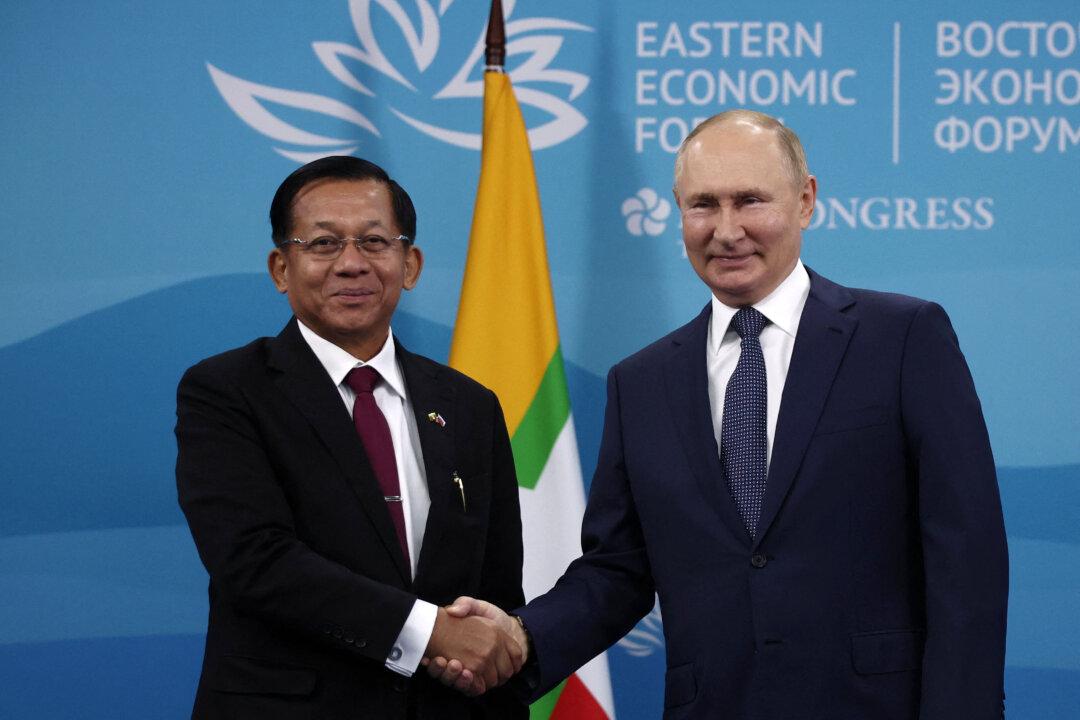The Russian State Nuclear Energy Corporation, Rosatom, has recently signed a few MOUs with the Burma Junta. This includes a deal in June to probe the feasibility of building 372 MW of wind farms and the inauguration in February of a nuclear power information center as a step toward developing atomic power.
Both Russia and the strife-torn Burma (also known as Myanmar) are currently subjected to rigorous sanctions, and experts told The Epoch Times that previously the two nations were just good friends, but the military takeover in Burma and Russia’s invasion of Ukraine has pulled both closer for strategic cooperation.





